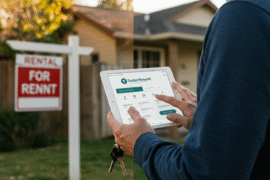This article may contain references to products or services from one or more of our advertisers or partners. We may receive compensation when you click on links to those products or services. Nonetheless, our opinions are our own.
Key Highlights
- Learning about homeownership is essential for a smooth homebuying process.
- Key topics include mortgages, budgeting, and credit management.
- Homebuyer education courses provide practical tips and tools for financial readiness.
- These courses explain the steps to securing a mortgage and becoming a homeowner.
- Some lenders or loan programs may require completing a course.
- Fannie Mae’s HomeView® offers free, nationally standardized online courses for homebuyers.
Introduction
Buying a home is an exciting milestone, but the process can feel overwhelming. Homebuyer education courses provide valuable knowledge and tools to guide you through this journey. This article explores the importance of learning about homeownership and offers actionable steps for first-time buyers.
Understanding Homeownership
Homeownership education equips future buyers with the information they need to make informed decisions. Key topics include mortgage loans, interest rates, property taxes, and insurance. Understanding these areas helps you prepare financially and avoid surprises.
Fannie Mae, a leader in mortgage financing, emphasizes the value of homebuyer education. Their HomeView® online course adheres to national industry standards and prepares borrowers for the homebuying process. These resources empower buyers to understand their housing needs and navigate the complexities of purchasing a home.
The Importance of Being Informed Before Buying
Homebuyer education is critical for those planning to purchase a home. These courses cover essential topics such as:
- Budgeting and saving for a down payment.
- Managing homeownership costs.
- Selecting the right mortgage product.
- Understanding closing costs and home maintenance.
Completing a course often results in a certificate, which can benefit buyers by meeting lender requirements or qualifying them for special loan programs with lower interest rates. The lessons learned help buyers make informed decisions, setting them up for long-term success.
Key Components of Homeownership Education
Homeownership education provides insights through online courses, workshops, or individual housing counseling. Key areas covered include:
- Money Management: Creating a budget, controlling debt, and saving for a down payment.
- Understanding Credit: Reviewing credit reports, improving credit scores, and managing debt responsibly.
- Mortgage Basics: Exploring different types of loans, understanding interest rates, and learning the application process.
By mastering these areas, individuals and families can confidently prepare for the financial responsibilities of homeownership.
Preparing for Homeownership: A Beginner’s Guide
Becoming a homeowner involves careful planning and preparation. Here’s a step-by-step guide:
Step 1: Assessing Your Financial Health
- Create a Budget: Track income and expenses to determine how much you can afford for a mortgage.
- Review Your Credit Report: Check for errors or areas for improvement, as your credit score impacts mortgage approval and interest rates.
- Explore Mortgage Options: Research different products, speak with lenders, and understand eligibility requirements and associated costs.
Step 2: Understanding Mortgage Basics
Learn how fixed-rate mortgages differ from adjustable-rate ones. Familiarize yourself with loan terms, amortization schedules, and the pre-approval process. Resources like Fannie Mae’s HomeView® course can help simplify these concepts. Completing a course may also qualify you for certain loan programs or reduced interest rates.
Work with a licensed real estate agent to find a home that meets your needs and budget. Consider factors such as:
- Daily commute times.
- Neighborhood amenities.
- School districts.
- Potential resale value.
Step 4: Making an Offer and Closing the Deal
Once you’ve found the right home:
- Make an Offer: Work with your real estate agent to negotiate a purchase price and closing terms.
- Complete the Mortgage Process: Submit necessary documents, such as proof of income and employment history, to your lender.
- Close the Deal: Attend the closing meeting, sign final documents, and officially become a homeowner.
Conclusion
Homeownership is a significant milestone that requires careful preparation. By understanding your finances, learning about mortgages, and finding the right property, you can confidently navigate the real estate market. Homebuyer education courses, such as Fannie Mae’s HomeView®, provide essential tools and insights to simplify this journey. With knowledge and preparation, you can turn the dream of homeownership into a reality.
Frequently Asked Questions
What is the Best Way to Save for a Down Payment?
Start by creating a budget to track expenses and identify areas to cut back. Consider opening a dedicated savings account for your down payment. Courses like Fannie Mae’s HomeView® offer practical money management tips.
How Important is Credit Score in Home Buying?
Your credit score is a critical factor in securing a mortgage and favorable loan terms. Lenders use it to assess your creditworthiness and financial responsibility. A strong credit score increases your chances of approval and lowers interest rates.
Can I Buy a Home with a Low Income?
Yes. Programs such as down payment assistance and special mortgage options are available for low-income buyers. HUD-approved housing counseling agencies can provide tailored guidance.
Beyond the down payment and mortgage, consider property taxes, insurance, maintenance costs, HOA fees, and potential repairs. Planning for these expenses ensures financial stability.
How Can First-Time Buyers Prepare for Unforeseen Expenses?
- Build an emergency fund to cover unexpected costs.
- Take homebuyer education courses to learn about savings strategies and insurance options.

Reviewed and edited by Albert Fang.
See a typo or want to suggest an edit/revision to the content? Use the contact us form to provide feedback.
At FangWallet, we value editorial integrity and open collaboration in curating quality content for readers to enjoy. Much appreciated for the assist.
Did you like our article and find it insightful? We encourage sharing the article link with family and friends to benefit as well - better yet, sharing on social media. Thank you for the support! 🍉
Article Title: Homeownership Education: Preparing for a Successful Home Purchase
https://fangwallet.com/2025/02/06/homeownership-education/The FangWallet Promise
FangWallet is an editorially independent resource - founded on breaking down challenging financial concepts for anyone to understand since 2014. While we adhere to editorial integrity, note that this post may contain references to products from our partners.
The FangWallet promise is always to have your best interest in mind and be transparent and honest about the financial picture.
Become an Insider

Subscribe to get a free daily budget planner printable to help get your money on track!
Make passive money the right way. No spam.
Editorial Disclaimer: The editorial content on this page is not provided by any of the companies mentioned. The opinions expressed here are the author's alone.
The content of this website is for informational purposes only and does not represent investment advice, or an offer or solicitation to buy or sell any security, investment, or product. Investors are encouraged to do their own due diligence, and, if necessary, consult professional advising before making any investment decisions. Investing involves a high degree of risk, and financial losses may occur including the potential loss of principal.
Source Citation References:
+ Inspo












































